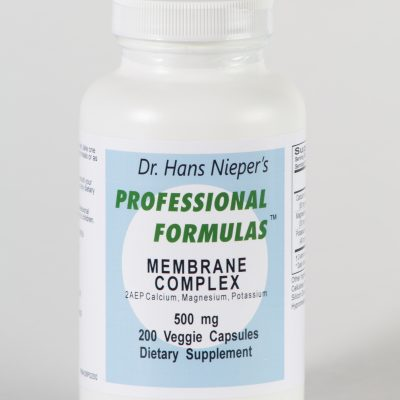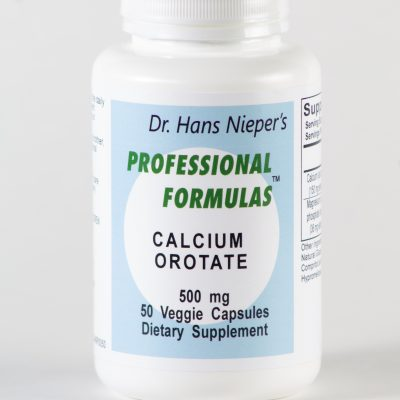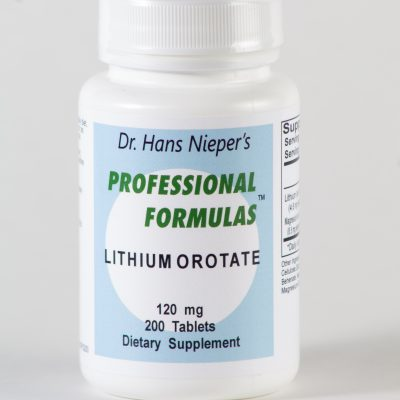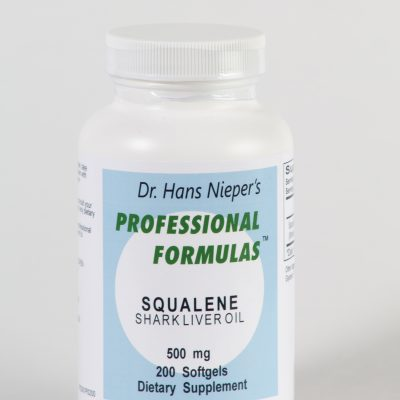
Table of Contents
Introduction
Dietary supplements have become a staple in the lives of many health enthusiasts1, promising to bridge the gap between nutritional needs and actual intake. In an era where health consciousness is at an all-time high, understanding the nuances of dietary supplements is essential. Are all supplements created equal? What should you know before incorporating them into your daily regimen? This article delves into the various types of dietary supplements, their quality, individual needs, benefits, and absorption, helping you make informed decisions about your health.
Types of Dietary Supplements
Dietary supplements are diverse, each serving a distinct purpose tailored to different health needs. Below, we break down the primary categories of supplements, highlighting their unique attributes.
Vitamins
Vitamins are organic compounds essential for various metabolic processes. They are categorized into water-soluble and fat-soluble vitamins. Water-soluble vitamins, including vitamin C and the B vitamins, must be consumed regularly as they are not stored in the body. In contrast, fat-soluble vitamins, such as vitamins A, D, E, and K, can be stored in the liver and fatty tissues, making them more susceptible to toxicity if over-supplemented.
Each vitamin plays a critical role in maintaining health. For instance, vitamin D is crucial for calcium absorption and bone health, while B vitamins are vital for energy metabolism and neurological function. Understanding these functions can help individuals identify which vitamin supplements may benefit them the most.
Minerals
Minerals are inorganic nutrients that also play critical roles in the body. They are generally classified into two categories: macrominerals and trace minerals. Macrominerals, including calcium, magnesium, and potassium, are needed in larger amounts, while trace minerals such as iron, zinc, and selenium are required in smaller quantities but are equally important for bodily functions.
Minerals support various processes, including enzyme functioning, nerve transmission, and muscle contraction. For example, calcium is essential for bone health, while iron is crucial for oxygen transport in the blood. Many individuals may find themselves deficient in specific minerals due to dietary restrictions or health conditions, making supplementation necessary.
Herbal Supplements
Herbal supplements are derived from plants and are often used for their therapeutic benefits. Common herbal supplements include echinacea for immune support, ginkgo biloba for cognitive function, and turmeric for its anti-inflammatory properties. These supplements can be beneficial but require careful consideration regarding their quality and efficacy.
While many herbal supplements are available over the counter, their effects can vary based on factors such as extraction methods and dosage. It’s important for consumers to do thorough research and consult healthcare professionals before starting any new herbal regimen.
Amino Acids
Amino acids are the building blocks of proteins and are vital for numerous physiological functions, including muscle repair, hormone production, and immune response. While the body can produce some amino acids, others, known as essential amino acids, must be obtained through diet or supplementation.
Popular amino acid supplements include branched-chain amino acids (BCAAs), which are often used by athletes to enhance recovery and muscle growth. Understanding individual protein needs can help determine whether amino acid supplementation is necessary.
Probiotics
Probiotics are live microorganisms that offer health benefits, particularly for gut health. They help maintain a healthy balance of gut flora, improve digestion, and may even boost the immune system. Probiotic supplements come in various strains, each with specific benefits.
Regular consumption of probiotics can enhance overall gut health, but it’s essential to choose high-quality strains and be aware of individual digestive needs to reap the maximum benefits.
Quality of Nutritional Supplements
Not all nutritional supplements are created equal. The quality of a supplement can significantly affect its efficacy and safety. Understanding the factors that contribute to high-quality supplements is crucial for making informed choices.
Importance of Quality
The importance of quality in nutritional supplements cannot be overstated. Poor-quality supplements may contain insufficient active ingredients, harmful contaminants, or filler substances that can compromise overall health. Furthermore, low-quality products may not be adequately tested for safety, leading to potential health risks.
Consumers should prioritize supplements that have undergone third-party testing, are manufactured in Good Manufacturing Practice (GMP) certified facilities, and provide clear labeling of ingredients and dosages. Researching brands and seeking certifications can help ensure the quality and safety of nutritional supplements.
Quality Nutritional Supplements: What to Look For
When selecting nutritional supplements, consider several key factors to ensure quality. Look for products that list their active ingredients along with their concentrations, so you know exactly what you’re consuming. Third-party testing, which verifies the quality and purity of the supplement, is another critical aspect to consider.
The source of the ingredients is equally important. Opt for products that use whole food sources or reputable suppliers, as this often indicates higher quality. Additionally, avoid supplements with excessive additives, artificial colors, or unnecessary fillers. Understanding labels and ingredients can guide consumers toward making healthier choices.
Liposomal Supplements
Liposomal supplements are a relatively new development in the field of nutritional supplementation. They encapsulate nutrients in liposomes, which are tiny lipid bubbles that enhance the absorption of the active ingredients. This technology can greatly improve bioavailability, allowing higher concentrations of nutrients to enter the bloodstream.
This is particularly beneficial for vitamins and compounds that tend to be poorly absorbed through traditional supplement forms. As research continues to evolve, liposomal formulations may become increasingly popular among health enthusiasts seeking optimal nutrient absorption.
Individual Nutritional Needs
Nutritional needs vary from person to person, influenced by factors such as age, gender, lifestyle, and health conditions. Understanding these individual requirements is essential for effective supplementation.
Assessing Personal Dietary Gaps
Assessing personal dietary gaps involves examining one’s diet to identify potential deficiencies. Keeping a food diary or working with a nutritionist can help pinpoint areas lacking in essential nutrients. For example, vegetarians and vegans may need to supplement vitamin B12 and iron, while individuals with limited sun exposure might require vitamin D supplements.
Regular health check-ups can also provide valuable insights. Hair and bloodspot tests can reveal deficiencies that may not be apparent through diet alone, guiding individuals toward appropriate supplementation based on their unique needs.
Factors Influencing Nutritional Needs
Several factors influence individual nutritional needs. Age plays a significant role; for instance, older adults may require more calcium and vitamin D to maintain bone health. Similarly, pregnant or breastfeeding women have increased nutritional demands to support fetal and infant health.
Activity level is another crucial factor. Athletes or highly active individuals may need higher amounts of certain vitamins and minerals to support their energy expenditure and muscle recovery. Understanding these variables can help tailor supplementation strategies for optimal health.
Why You Need Nutritional Supplements
While a well-balanced diet is the ideal way to obtain nutrients, various factors can lead to nutritional deficiencies. Understanding why nutritional supplements are necessary can help individuals make informed health decisions.
Common Nutritional Deficiencies
Common nutritional deficiencies can arise from poor dietary choices, food availability, or specific health conditions. For instance, iron deficiency is prevalent among women of childbearing age, while vitamin D deficiency is widespread due to limited sun exposure in certain climates.
Other common deficiencies include vitamin B12 among vegetarians and omega-3 fatty acids among those who do not consume fatty fish. Identifying these deficiencies through dietary assessments, hair tests or blood tests can help determine whether supplementation is necessary. Hair and bloodspot tests are now available that you can do at home.
Benefits of Supplementation
The benefits of nutritional supplementation can be substantial, particularly for those with specific dietary restrictions or health goals. Supplements can enhance overall health, support immune function, improve energy levels, and aid in recovery from illnesses or injuries.
Moreover, supplements can play a vital role in preventing chronic diseases. For example, antioxidants can help combat oxidative stress, while omega-3 fatty acids are known for their anti-inflammatory properties. By incorporating the right supplements, individuals can experience enhanced health and well-being.
Forms of Vitamins
Vitamins come in various forms, including tablets, capsules, powders, and liquids. Each form has its advantages and disadvantages. For instance, liquid vitamins may be easier to ingest for those with swallowing difficulties and can be more readily absorbed.
Tablets and capsules are more common and convenient, but they may contain fillers and binders that some individuals prefer to avoid. Choosing the right vitamin form depends on personal preferences, absorption rates, and specific health needs.
Forms of Minerals
Minerals are also available in multiple forms, including chelated minerals, which are bound to amino acids for better absorption, and mineral salts. Understanding the differences in mineral forms can help consumers select the most effective option for their needs.
For example, magnesium citrate is often better absorbed than magnesium oxide, making it a preferable choice for those seeking to increase their magnesium levels. Evaluating these options can lead to more effective supplementation strategies.
Absorption of Nutritional Supplements
The absorption of nutritional supplements is a critical factor influencing their efficacy. Not all supplements are absorbed equally, and various factors can impact how well nutrients enter the bloodstream.
Differences in Absorption Rates
Different forms of vitamins and minerals have varying absorption rates. For instance, fat-soluble vitamins require dietary fats for optimal absorption, while water-soluble vitamins are readily absorbed in the presence of water. This means that taking specific supplements with food may enhance their effectiveness.
Moreover, certain factors, including age, digestive health, and the presence of other nutrients, can influence absorption. Individuals with digestive issues may struggle with absorbing certain nutrients, which may necessitate higher doses or alternative forms of supplements.
Most Absorbable Vitamins
Some vitamins are inherently more absorbable than others. For example, vitamin C is readily absorbed in its natural form found in fruits and vegetables. Similarly, methylcobalamin, a form of vitamin B12, is more bioavailable than cyanocobalamin, making it a preferred choice for B12 supplementation.
Choosing highly absorbable forms of vitamins can significantly impact their effectiveness. Consumers should look for supplements that list these forms on their labels to ensure optimal nutrient intake.
Most Absorbable Minerals
Like vitamins, the absorbability of minerals varies. Chelated minerals, such as magnesium glycinate or zinc picolinate, are often more easily absorbed than their non-chelated counterparts. This is due to their binding to amino acids, which facilitates transport across the intestinal wall. The most absorbable supplements are in a category called Mineral Transporters which have the ability of delivering minerals deep within the cells of the body.
Conclusion
Nutritional supplements are not one-size-fits-all. With various types, qualities, and individual needs to consider, making informed choices is crucial for optimizing health. Understanding the differences between vitamins, minerals, herbal supplements, amino acids, and probiotics is essential in determining what may be beneficial. Additionally, assessing personal dietary gaps and recognizing the importance of quality can lead to better supplementation practices.
As you navigate the world of nutritional supplements, remember that your body’s unique requirements play a pivotal role in your health journey. By prioritizing quality, considering absorption rates, and tailoring your choices to your individual needs, you can effectively enhance your health and well-being through nutritional supplementation.
FAQ’s
What are the essential vitamins and minerals I should consider supplementing?
Common essential vitamins to consider include vitamin D, vitamin B12, and vitamin C. Essential minerals often include calcium, iron, and magnesium. However, individual needs may vary based on diet and health conditions.
Can I get enough nutrients from food alone?
While a well-balanced diet can provide most nutrients, many people struggle to meet their nutritional needs due to dietary restrictions, food choices, or health issues. Supplements can help fill these gaps.
How do I know if I need supplements?
Are natural supplements better than synthetic ones?
Natural supplements are often perceived as better due to their bioavailability and fewer additives. However, the effectiveness of a supplement ultimately depends on its formulation, quality, and how well it meets individual needs.
Is it safe to take multiple supplements at once?
Taking multiple supplements can be safe, but it’s important to be mindful of potential interactions and not exceed recommended dosages. Consulting with a healthcare provider is advisable before starting multiple supplements.
Products
At Home Tests
-
←→

Doctors Data Hair Toxic Elements Test
$159.00$123.00Doctors Data Hair Toxic Elements Test is a noninvasive screening hair test reports an expanded lineup of toxic metals as well as specific nutrient elements.- Buy 2 at $119.00
Doctors Data Hair Toxic Elements Test
At Home Health Tests, Toxic Metals Tests, Hair Tests, Autism Tests, Detox Solutions, Diabetes Solutions, Fatigue Solutions, Memory Loss Solutions, Autism Solutions$159.00 $123.00Successfully Added to your Shopping CartAdding to Cart... -
←→

Trace Elements Nutritional Deficiencies Hair Test
Nutritional Tests, At Home Health Tests, Toxic Metals Tests, Hair Tests, Autism Tests, Immune System Tests$188.00 $148.00Successfully Added to your Shopping CartAdding to Cart... -
←→

Analytical Research Labs Hair Test
$179.00$149.00Providing a mineral blueprint of one’s biochemistry, an Analytical Research Labs Hair Minerals Test reports levels of minerals and heavy metals in your body giving possible reasons for your symptoms, with suggestions for nutritional supplements and diet changes. Hair tissue mineral analysis can provide pertinent information about balanced nutrition, one’s metabolic rate, energy levels, sugar and carbohydrate tolerance, stage of stress, immune system and glandular activity.- Buy 2 at $145.00
Analytical Research Labs Hair Test
$179.00 $149.00Successfully Added to your Shopping CartAdding to Cart...
Mineral Transporter Supplements
-
←→

Membrane Complex
Supplements, Mineral Supplements, Heart Solutions, Skin Solutions, Probiotics Supplements, Bone Solutions, Lung Solutions, Muscle Solutions, Immune System Solutions$15.00Successfully Added to your Shopping CartAdding to Cart... -
←→

Calcium Orotate
Supplements, Mineral Supplements, Bone Solutions, Nerve Damage Solutions, Skin Solutions, Heart Solutions$26.80Successfully Added to your Shopping CartAdding to Cart... -
←→

Zinc Arginate with Aspartate
Supplements, Mineral Supplements, Skin Solutions, Immune System Solutions, Amino Acids Supplements, Allergy Solutions$8.10Successfully Added to your Shopping CartAdding to Cart... -
←→

Buffered C with Calcium, Magnesium & Potassium
Supplements, Vitamin Supplements, Skin Solutions, Cancer Solutions, Immune System Solutions, Antioxidant Supplements, Allergy Solutions, Autism Solutions$11.70Successfully Added to your Shopping CartAdding to Cart... -
←→

Selenium
Supplements, Mineral Supplements, Heart Solutions, Immune System Solutions, Hormone Solutions, Antioxidant Supplements$13.10Successfully Added to your Shopping CartAdding to Cart... -
←→

Magnesium Arginate w/ Aspartate
Supplements, Mineral Supplements, Muscle Solutions, Heart Solutions, Diabetes Solutions, Nerve Damage Solutions, Immune System Solutions, Amino Acids Supplements, Autism Solutions$12.70Successfully Added to your Shopping CartAdding to Cart... -
←→

Lithium Orotate
Supplements, Mineral Supplements, Autism Solutions, Nerve Damage Solutions, Immune System Solutions, Gastrointestinal Solutions$16.30Successfully Added to your Shopping CartAdding to Cart... -
←→

GTF Chromium Glucose Tolerance Factor
$4.60GTF Chromium Glucose Tolerance Factor with 200 mcg ChromiumGTF Chromium Glucose Tolerance Factor
Supplements, Mineral Supplements, Diabetes Solutions, Skin Solutions, Heart Solutions, Muscle Solutions, Anxiety, Stress, Depression Solutions, Fatigue Solutions$4.60Successfully Added to your Shopping CartAdding to Cart... -
←→

-
←→

Squalene Shark Liver Oil
Supplements, Essential Fats Supplements, Skin Solutions, Heart Solutions, Immune System Solutions, Fish Oil Supplements$42.90Successfully Added to your Shopping CartAdding to Cart...
References
- https://ods.od.nih.gov/factsheets/list-all/
- https://www.federalregister.gov/documents/2004/02/11/04-2912/final-rule-declaring-dietary-supplements-containing-ephedrine-alkaloids-adulterated-because-they
- https://medlineplus.gov/druginfo/natural/866.html
